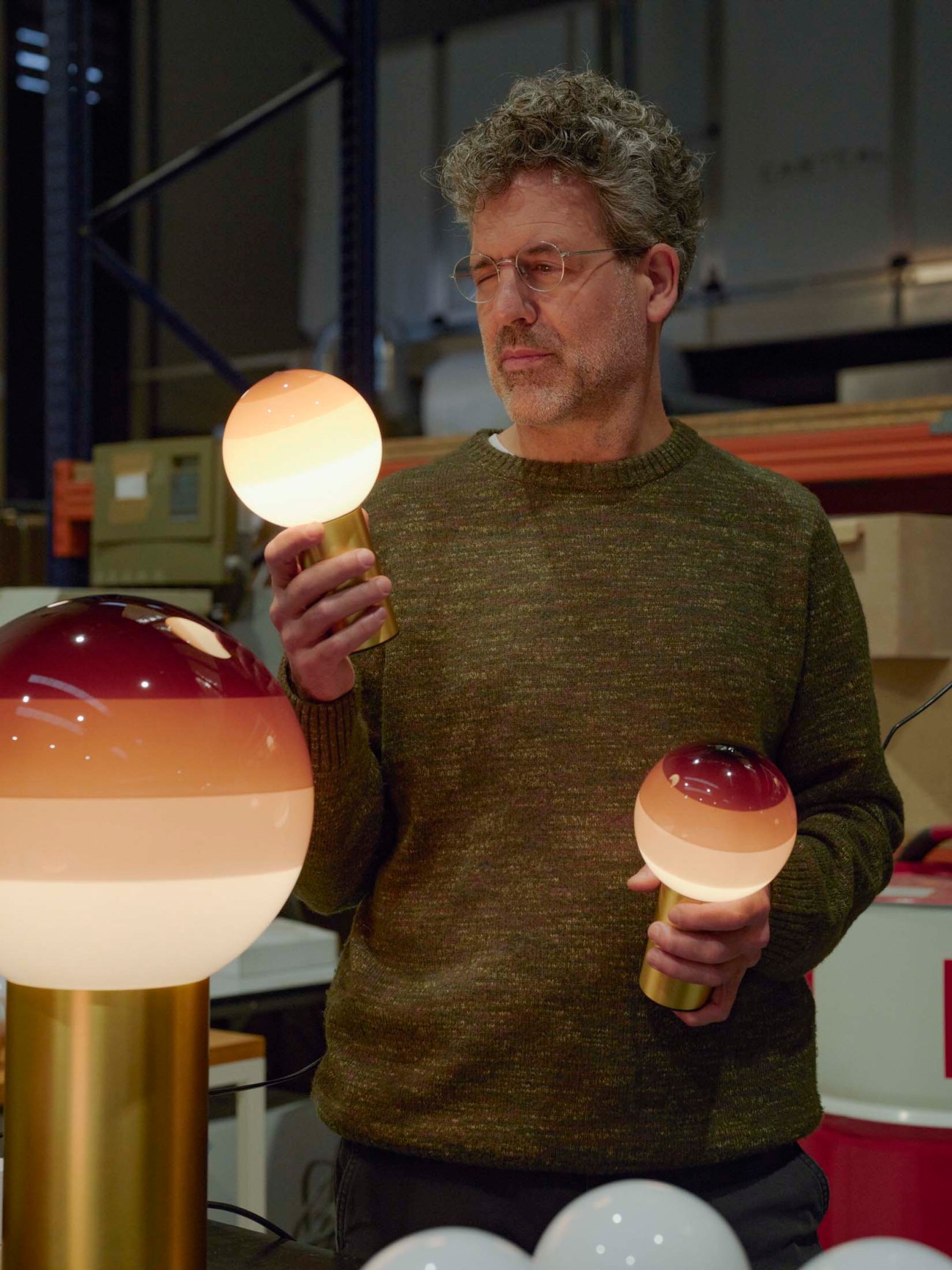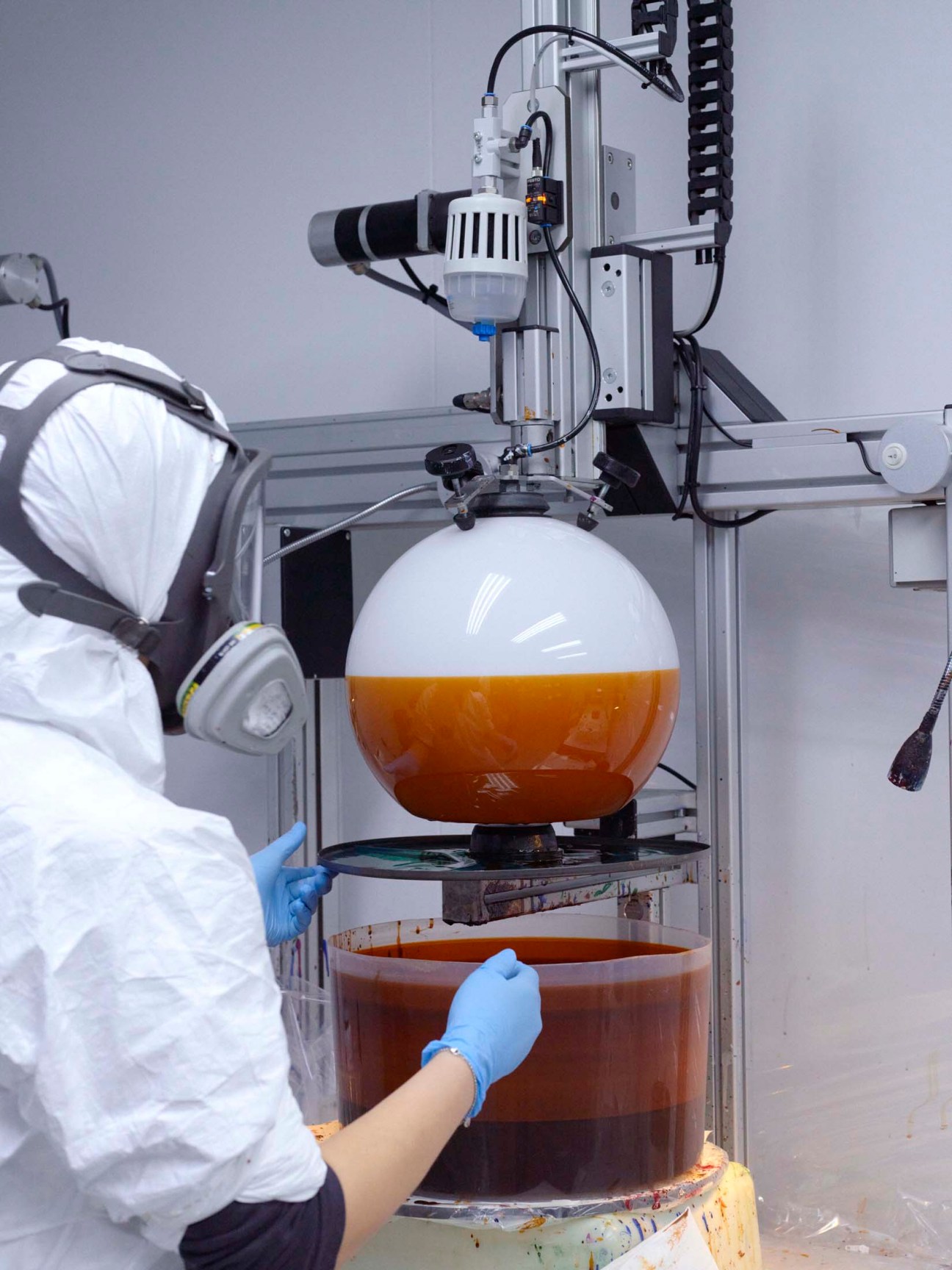Interview: Jordi Canudas on the creation of Marset’s Dripping Light
We discuss the design of the famous lamp with its maker, who inisits that every light has a personal touch.
A visit to the headquarters and factory of Marset, in Terrassa near Barcelona, is an illuminating experience. Here, the lighting brand produces its impressive array of luminaires – often with bespoke machinery. One such example is the special “drill press-inspired” apparatus, which allows its operator to gently dip bulbs into paint to create the Dipping Light. Designed by Jordi Canudas, it has been manufactured by Marset since 2018. Its defining feature is a spherical glass body that is dipped into coloured paint to create a layered, gradient effect. This year at Euroluce, Marset is expanding the collection with three new colours: a cream that projects warmth, a chic chocolate and a burgundy number. We catch up with Canudas in Terrassa to reflect on the evolution of the lamp.

How did the Dipping Light come to be?
I designed it for a restaurant in Barcelona that invites artists to create installations. I realised that a lamp is what you put around a bulb to control the light. I thought, “What if to make a lamp we just painted the light source?” I started dipping white, opaline bulbs into paint, adding layers until the light was dimmed, and paired it with a brass base. It started as a performance for this restaurant but then people wanted them, so I started producing them.
It sounds like a very experimental process.
I would never have been able to imagine this design on a drawing board. My studio has become a playground of filters, translucencies, fabrics, glasses, colours and light sources. Sometimes you start testing and it leads nowhere – but other times you keep finding things that are worth pursuing.


Marset has developed a manually operated machine for dipping the Dipping Light. Why is the human touch important?
It means that everyone gets a unique piece. The reality is that it’s so tricky to make the light. You need to be able to control the speed when the ball goes into the paint and the speed when it comes out. It needs to be checked to make sure that no bubbles develop. There are still small imperfections and that’s a good thing. Sometimes people buy an industrial product and they expect it to be the same as in the picture but I’m happy that the market can embrace the beauty of imperfection.
Tell us about the new colours.
The existing range is very colourful and has a very strong identity. These new colours can integrate better with an existing space; they’re less of a statement and more about cohesion, bringing the collection into a more mature place.


